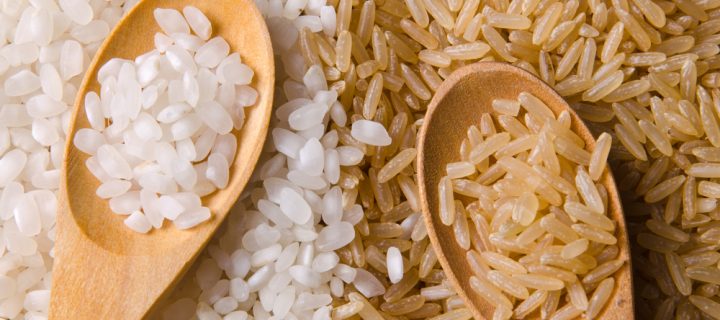Young children should avoid rice milk and eating white rice.
Rice is a common food that has been a staple in the diets of cultures across the world for thousands of years. You might think of healthy stir fries, slimming rice and veggie bowls, and the allure of sushi when considering some of the ways we eat this cereal seed. Rice is certainly not on the list of highly processed foods and sugar-laden treats we are warned are best to ignore. But rice has a hidden danger that some say should give you pause. It’s a common chemical that’s found just about everywhere but can be fatal in high doses: arsenic.
Should you be worried? Here’s what experts say.
The benefits of eating rice
Before getting to the bad stuff, let’s look at the good. Rice is generally categorized by its size or shape, and color. As a starchy food rich in carbohydrates, it can fill you up, provide you with energy, and leave you feeling satisfied after a good meal.
Related: These are the classic symptoms of burnout
Both whole grain brown rice and white rice contain protein and fiber, although brown rice has more. Brown rice also brings the added benefit of some magnesium and phosphorous. Its bran layer contains flavonoids and can help protect against disease. Adding brown rice to your diet can reduce your risk of developing heart disease, type 2 diabetes, and some types of cancer. As a gluten-free grain that’s easy on your digestive system, rice can definitely be a beneficial part of your diet.
Arsenic in rice
Here’s the catch. Even though brown rice should be better for you than simple white rice, this isn’t always true. Because brown rice retains the bran section of the grain, wholegrain rice may actually be worse for you, if eaten often over a period of time. The bran part of rice is where the heavy metal arsenic accumulates. As a contaminant, arsenic has been linked to an increased risk of developing cancer and heart disease, some of the very things all that extra fiber is supposed to help fight off. Many people don’t likely eat enough brown rice regularly to be concerned about contamination. It’s worth thinking about, however.
Some experts advise that young children steer clear of brown rice, particularly because they tend to gravitate towards plain foods (like rice), and often have limited dietary preferences, ie, they may easily eat too much brown rice. Because young kids have a small body weight, this can be a bit dangerous. In fact, it’s recommended that all children under 5 avoid drinking rice milk.
How much should you worry about it?
You don’t want too much arsenic in your diet. Inorganic arsenic is often found in fruit juice and groundwater, as well as rice, and organic arsenic is found in fish and shellfish. Experts say the inorganic stuff is of more concern than the organic. In very high levels it can lead to disease and even death. Most people will not have to worry about being exposed to too much arsenic via their rice but the contaminant does cause enough trouble that it’s on the World Health Organization’s list of 10 chemicals of major public concern, globally.
The takeaway? Eat everything in moderation. Avoid giving young children rice milk and brown rice-based products. Eat rice occasionally and not with every meal. And enjoy it.
photo credits: Iasmina Calinciuc/Shutterstock.com












